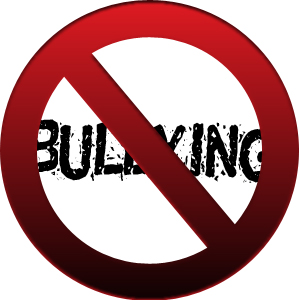I used to think my father was Santa Claus. And it’s not because I had discovered he was fictional and the North Pole was my living room.
Much worse.
I thought my father was THE Santa Claus; the real one who flew away on his reindeer sled, dropping off presents under trees and filling his pockets with cookies.
I was almost smug about it; so proud of myself for being gracious enough to share my father with every single other child in the world.
Maybe it’s because my daddy used to have a belly; not many people remember him like that now. But he had a full round face and a wide and mischievous grin, which incidentally, just like Santa Claus, gave nothing away.
Daddy was an impeccable keeper of secrets. People noticed this, and confided in him wholeheartedly. Colleagues, random relatives, some of my own best friends, and even little toddlers, poured out the inconvenient truths of their lives to a man they knew had the ability to listen.
It would irk us sometimes—my mother, sister, and I—because we’d learn of some scandalous affair, or a new man in my cousin’s life, or a college being dropped out of, much later than the fact. And at those times, probably because he couldn’t lie, when we asked daddy if he’d known, he’d smile sheepishly and shrug us off.
On the flip side, I felt proud that my friends, even those who had only met him a handful of times, felt comfortable enough to call or write to him and ask for advice. He never told me a single detail of anything they’d said, and I never felt so grateful for secrecy.
But why him?
As a child, I stuck to my Santa Claus theory until one Christmas my sister nonchalantly shattered it by telling me the truth. “Santa Claus isn’t real; grow up.”
As the years went by and my father’s heart condition called for a significant reduction in stomach circumference, reality made it’s way in.
The day my father came home after his first heart attack and walked in under the tacky ‘welcome back’ sign my sister and I had pinned up, I saw for the first time how much smaller he had become. Later that night I cried for the ‘plumper’ version of my daddy to come back—the full belly, the voracious appetite, the hugs that put polar bears to shame.
He didn’t, of course. His appearance changed many times, in many ways, up until his last day. But I noticed that one thing remained.
People still leaned on him. Even when he looked frail, fell ill, couldn’t walk. People still leaned on him—divulged secrets, asked for help, demanded explanations.
I had always done the same, so I should have known why that was. But I didn’t.
Only now, when I find myself typing an email to him I’ll never send, or picking up the phone and realizing I can’t call, do I know exactly why it was him we had all been reaching for.
My father imparted no judgment. Not out of any conscious effort to be holier than thou; it simply didn’t occur to him as one of the plausible reactions.
It’s an ideal we aspire to, but fail by the act of trying so hard. We tell our friends “I’m not judging,” but immediately text another “No judgment, but I don’t know how she could do something like that.” As if by saying those words you free yourself from committing the act.
You don’t.
I never heard my father say, “no judgment”; or anything of the like. I would imagine he’d think it absurd that he was in any position to do so.
But why? What made him achieve this uncontrived ability?
Faith.
If you accept that all things remain out of your control—as much of my father’s life did—then you start to see you have no real authority over anything at all, whether it’s your child, your employee, or yourself.
On a much wider breadth of reality, not only have you never been granted the gavel of judgment, but whatsoever would have even made you think you have?
My father lived his life by his own rules, and allowed others to do the same. He didn’t put anyone on a pedestal in the same manner by which he didn’t peer down either. It was a level playing field, his world. And although inequalities existed—and morality was often questioned—my father had the ability to accept everything.
He didn’t always have to like it, or agree with it, or support it. But simply knowing a fact about another person did not make him alter his perception of their worth, their humanity, or their capabilities.
Whatever was inside their souls was given by a power much higher than my father—or anyone else for that matter—and so the authority to put their life under a microscopic lens created by the limitation of his own perception was a power he believed he didn’t hold.
And he was right.
It’s not often you can tell a person something without wondering what they’ll think about you in return. It’s hard to share weakness and hope the person can still see strength. It’s next to impossible to ask a question of virtue after knowing you’ve committed a sin. And so when you find someone who might be able to do that, why would you not hold on for dear life?
That’s what it was.
Knowing that you can tell someone the worst inside you, and they’ll still look back at you and see the best.
Real or not, that sounds a little bit to me like Santa Claus.

